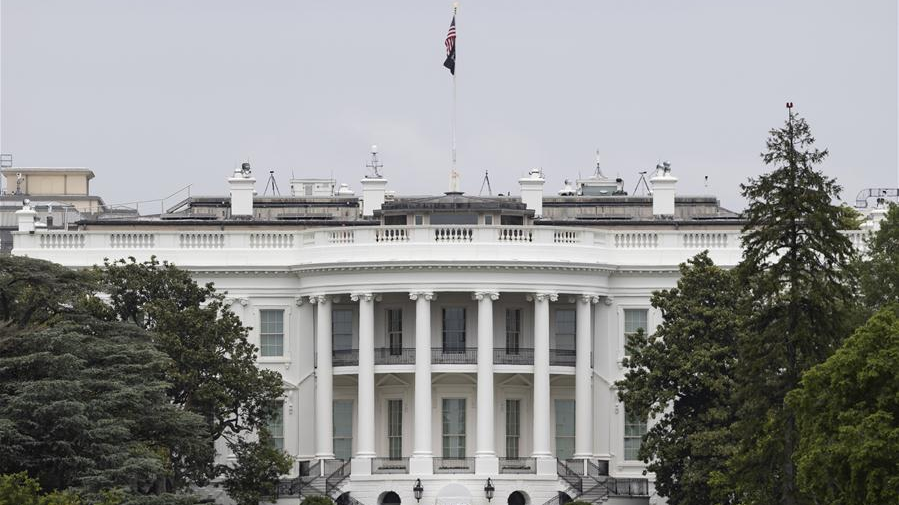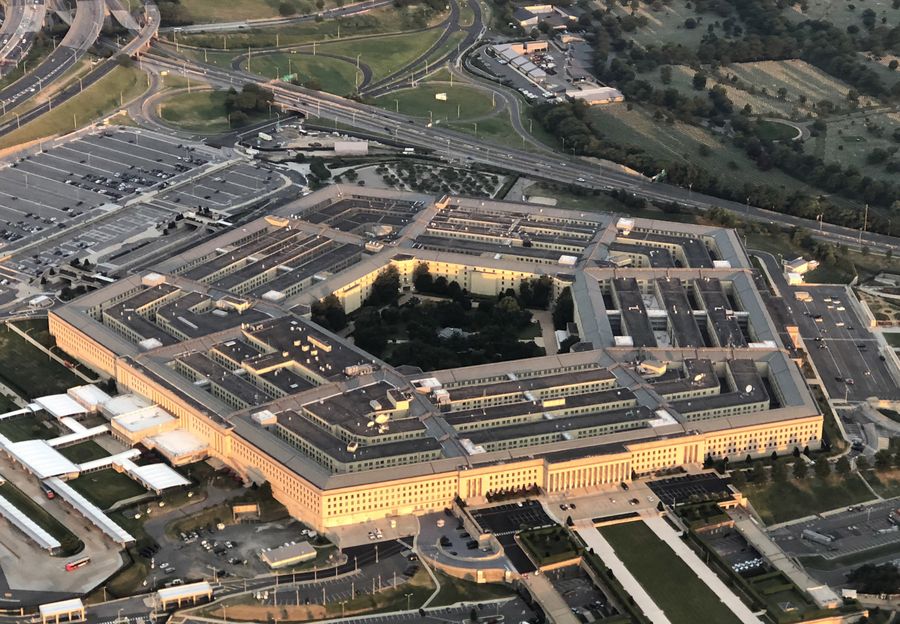
The White House in Washington D.C., the United States, May 21, 2020. /Xinhua
The White House in Washington D.C., the United States, May 21, 2020. /Xinhua
Editor's note: Li Yun is a researcher at the Institute of Foreign Military Research of the Department of War Research, China's People's Liberation Army (PLA) Academy of Military Sciences. The article reflects the author's opinions and not necessarily the views of CGTN.
U.S. national security officials have discussed the possibility of restarting nuclear tests in an internal meeting on May 15, according to U.S. media reports.
On May 26, Drew Walter, performing the duties of deputy assistant secretary of defense for nuclear matters, said that a live nuclear test could be arranged within "months" if requested by President Donald Trump. If the United States restarts nuclear testing, it would formally be withdrawing from the Comprehensive Nuclear-Test-Ban Treaty (CTBT) the country signed.
The CTBT was adopted by the United Nations General Assembly in 1996 and was opened for signature by all other countries in the world. Although the U.S. has not ratified the treaty so far, it has suspended nuclear tests since 1992. In fact, from a military point of view, the CTBT has long lost its arms control significance to a nuclear power like the U.S. After the moratorium on nuclear testing, the U.S. has been relying on computer simulation and subcritical nuclear tests to maintain and upgrade its nuclear weapons.
In recent years, the focus of nuclear weapon research and development of nuclear powers was mainly to improve the penetration capability and strike accuracy of warheads and delivery vehicles of nuclear weapons, which is not directly related to nuclear testing.
But for the global arms control system, the CTBT is of great significance. Testing weapons is a necessary stage of any weapon research and development. Therefore, the CTBT is an important pillar of the international nuclear weapons control system, which is crucial to promoting nuclear disarmament, preventing the proliferation of nuclear weapons and maintaining world peace and security.
From Trump's personal point of view, discussing restarting nuclear tests at this time helps him win the upcoming presidential elections.
More than 100,000 people have died of COVID-19 in the U.S. and the economic situation is getting worse by the day. Even if economic activities are fully ressumed, by the end of the year, economic indicators will not be Trump's capital to get re-elected. Therefore, some actions in the military field have become his options. Not long ago, the U.S. Ambassador to Poland Georgette Mosbacher said that the U.S. could consider deploying nuclear weapons in Poland.
From the perspective of U.S. national strategy, on the one hand, restarting nuclear tests shows that the competition of big powers is once again regarded as the primary security threat of the United States.
After the Cold War, the possibility of another world war or a large-scale war among great powers decreased, and local wars and armed conflicts became the main types of wars. As a weapon dedicated to a world war and a large-scale war, the role of nuclear weapons in actual combat has further declined.
At the same time, after the 9/11 attacks, in the ranking of security threats in the U.S., the traditional big power competition has gradually given way to non-traditional security threats such as terrorism.
However, after Trump became president, he once again regarded the competition of major powers as the biggest security threat, and continuously increased investment in nuclear weapons research and development. This shows that the current U.S. administration regards military power, including war, as a key means to big power competition.
On the other hand, it indicates that the U.S. is trying to build a new world arms control system to ensure its absolute military advantage.

The Pentagon is seen from an airplane over Washington D.C., the United States, July 11, 2018. /Xinhua
The Pentagon is seen from an airplane over Washington D.C., the United States, July 11, 2018. /Xinhua
The current world arms control system was gradually established at the end of the Cold War and the period that closely followed. As the winner of the Cold War, the U.S. dominated the establishment of this system, which is objectively conducive to world peace and stability. But subjectively, the U.S. is trying to use the arms control system to curb the military development of Russia and other military powers and maintain its absolute military advantage.
The U.S. believes that some of the major powers of today with weak military strength at the time of the establishment of this system have become a threat to its military hegemony. Therefore, America is attempting to destroy the existing global arms control system and reconstruct a new one dominated solely by itself to contain all possible challenges.
America's withdrawal or preparation to withdraw from arms control treaties such as the Intermediate-Range Nuclear Forces Treaty, the Arms Trade Treaty and the Treaty on Open Skies, are all steps to deconstruct the existing arms control system.
The U.S. restarting its nuclear testing will inevitably have a significant impact on the world's strategic stability, arms control situation and even the world system.
First, it will affect the existing arms control system and international security.
The CTBT is an important pillar of the international nuclear weapons control system. The most direct effect of the failure of the treaty is relaxing the restrictions of the arms control system on the development of nuclear weapons by some countries with weak nuclear power. U.S. experts also acknowledged that if the United States conducts experiments, it will get relatively little unique information; and the tests that other countries may carry out later will be of great value to their own weapon designers.
Second, it will speed up the U.S. attempt to destruct the existing international system.
This system was intended to consolidate the U.S. global hegemony. But with the rise of developing countries, Washington believes that it is in danger of losing its leading position in the current system.
However, restricted by globalization and the rapid growth of emerging economies, the destruction of economic subsystems is a double-edged sword for the U.S. Therefore, Washington regards the destruction of the existing security system as a breakthrough to deconstruct the international system as a whole.
Third, some experts believe that the U.S. move will trigger a new arms race. I think that's less likely.
On the one hand, countries with too great a disparity in military strength compared with the U.S. are not the targets of the arms race. On the other hand, the strategic rivals of the U.S. will not jump in the trap of an arms race because they adhere to the concept of peaceful development and win-win cooperation, and will not engage in an arms race with any other country.
(If you want to contribute and have specific expertise, please contact us at opinions@cgtn.com.)